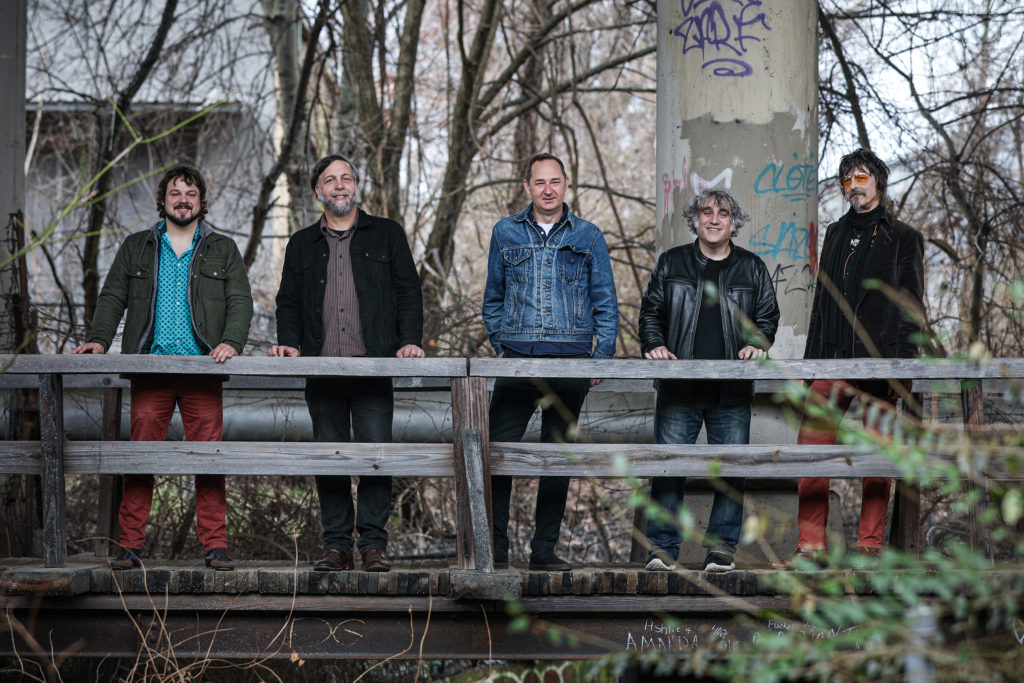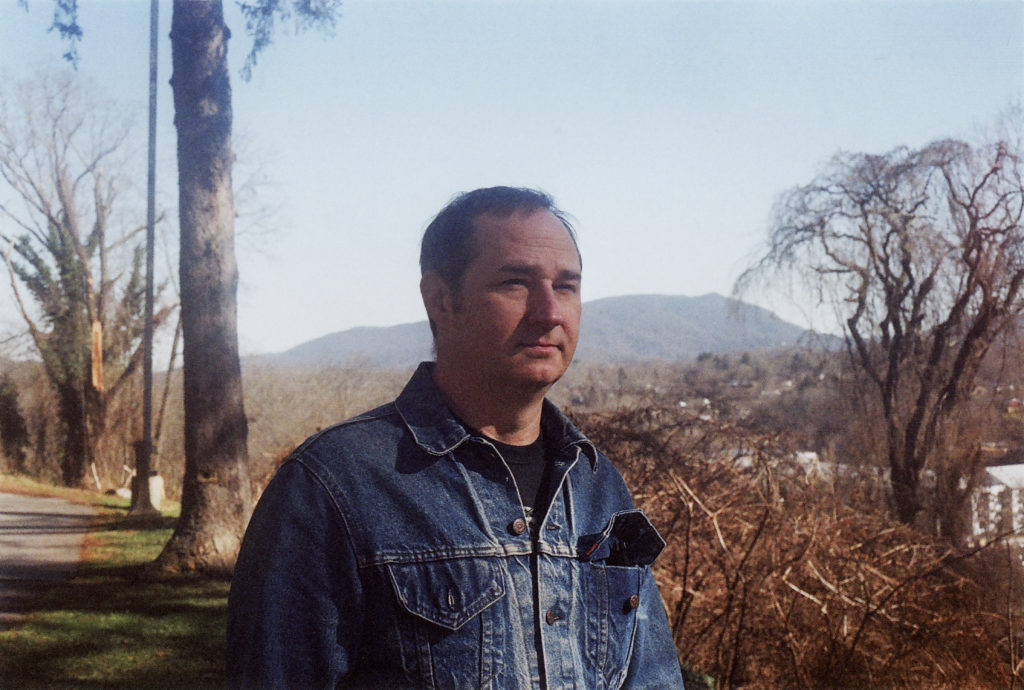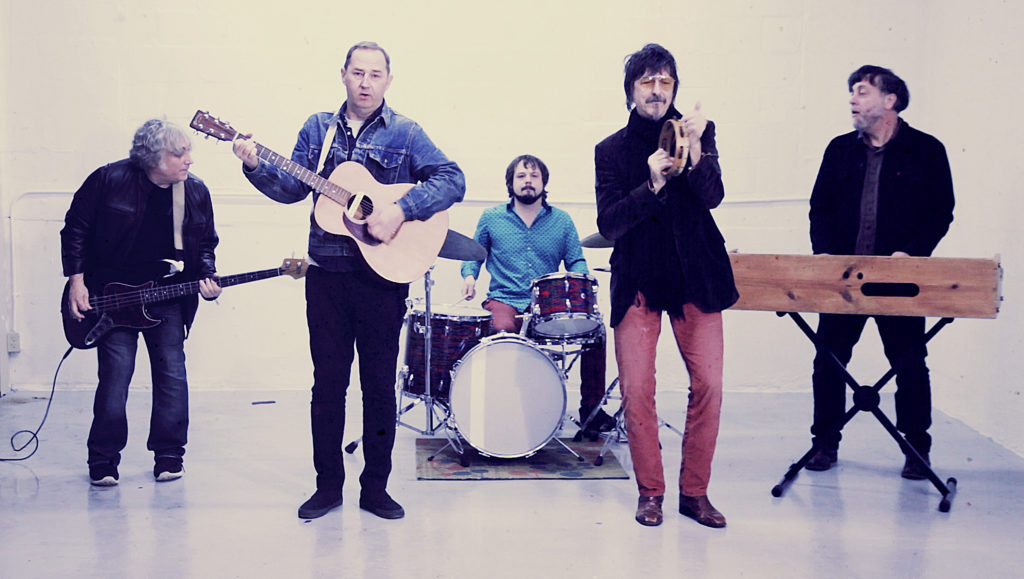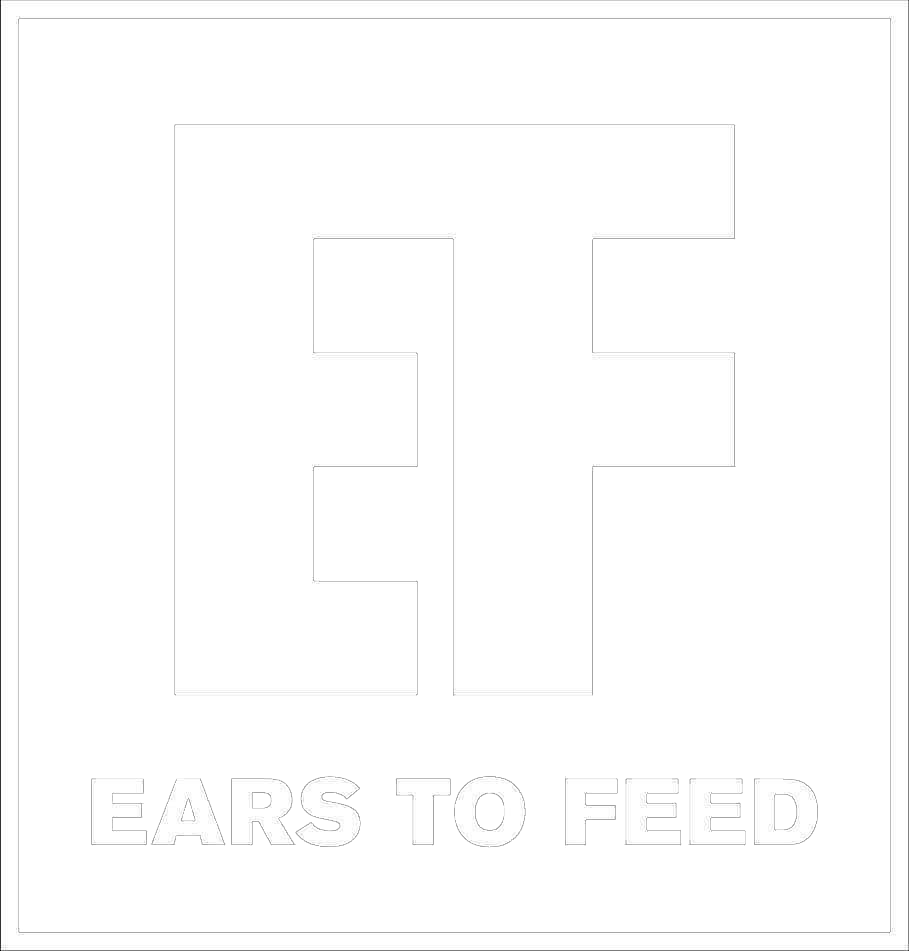There is nothing worse for a musician than being tied to a certain era. In that regard, it takes a special artist to split their brain in two and have the sort of “big picture” mindset to buck against any trending sonic aesthetics or cashing in on zeitgeisty songwriting tricks to create something that will stand the test of time. Memphis songwriter Greg Cartwright has been able to do this over nearly 30 years releasing music.
With his many projects like the Compulsive Gamblers and the legendary garage punk band The Oblivians to his current songwriting outlet The Reigning Sound — Cartwright has been able to draw influences from the rich Memphis heritage of ‘50s and ‘60s garage rock , Country, Soul, and mix them with the spirit and menace of Punk to create a style all his own. Last February, Cartwright had re-assembled the original “Memphis” lineup of Reigning Sound to do a short tour in support of Merge Records reissuing the band’s 2005 album Home For Orphans.
While on the road, it occurred to Cartwright and the rest of the band that it had been 20 years since they first got together to play the songs that would go on their debut album, Break Up, Break Down. As someone who is constantly moving forward, it took him by surprise. “We were definitely like, ‘Oh, wow, it’s been 20 years since we made the songs’, because we were playing some of the songs from the first record,”, remembered Cartwright as we connected early one morning over Zoom.
The reunion was a sweet look back into the past for Cartwright. A chance to rekindle some of the old magic with some close friends. But once the tour was over, that’s as far as it was supposed to go. With a fresh batch of new Reigning Sound songs, the plan was to go back into the studio with his longtime touring band The Jay Vons in New York City. But with the pandemic, those plans were quickly thrown out the window. Cartwright — now based in Asheville, NC — decided since there was no way to make it up north to record, why not get the old band back together to bash out these tunes?
The resulting record A Little More Time With Reigning Sound — out May 21 on Merge Records — is the first new music from the band’s original lineup capturing Cartwright at the height of his songwriting powers with the band. This is Rock and Roll at its most life affirming. In our conversation with Cartwright, we discuss reuniting the original Memphis lineup, his early Punk Rock days with The Oblivians, his encounters with his hometown hero Alex Chilton and so much more.

The new album A Little More Time with Reigning Sound is great. I heard that you had been intending to record this record with the same band you recorded Shattered with — The Jay Vons — but due to COVID, you decided to record this with the original Memphis version of Reigning Sound. How was it recording with the original lineup?
It was really fun. And yeah, it was a few different things that led to the situation playing out the way it did. I couldn’t really go to New York. The pandemic had really just got underway, and nobody really knew how long that was going to last and New York was a hotspot. So that probably wasn’t going to happen. It just so happened that Merge had reissued Home For Orphans. So I thought as a way to kind of coincide with that, the original band could get together and play a handful of shows in the Midwest, which we did. Those were at the end of February and the beginning of March, right before the pandemic started. We were kind of already rehearsed and our dynamic was together because we just played a handful of shows. That made it easier to go back and do something with them. I think if it had been a cold start, and we hadn’t played together for years, that might have been more tricky. Also, a tricky part of making a record during the pandemic was that I didn’t want people to be around each other excessively, if I could avoid it. That meant limited rehearsals and studio time. If we needed like a couple of weeks just to get our dynamic back, that would have made it really hard.
It was a really lucky thing that we had just been on the road, doing some shows together, and the feel was there, so it’s a little easier to jump back in the saddle. One thing that was tricky about it was that Greg Roberson, the original drummer, had a hand injury many years ago that severed a lot of the muscles and tendons in his hand —right around his wrist area. It was a really bad injury. Now when he plays, he has to put the stick in his hand and then tape it up. He doesn’t have a lot of strength in that one hand. So playing the old material, especially the stuff from Home For Orphans that was mostly the very moody ballads and stuff was really easy. But as far as really rockin’ out or something that’s really difficult for him… It was great that we were able to get Graham Winchester, a friend and great drummer in Memphis who agreed to come on board. He played some of the drum stuff and Greg played some of the other stuff. And then they alternately play extra added percussion. We needed an extra percussionist to really complete the project.
Did you notice a shift in how each band would approach your material?
The Jay Vons have more of a soul feel.
When you toured did you notice the Memphis lineup playing your newer material, say from Shattered, differently?
Well, with the Memphis lineup, we didn’t really play any new material. When we did that tour, we just stuck to Home For Orphans, and maybe a couple of other things from the early days. I don’t think I’ve really tried to play any material with them that wasn’t already in their wheelhouse.
On the stuff for the new record, there’s a different dynamic with these players than I have when I played with the Jay Vons. I really like both, but definitely each group of people has a particular strength as far as players. When you bring them a song, they’re going to play to their strength. And I think with the Memphis lineup, it’s just a different dynamic. I appreciate both greatly. Either lineup could have played any of the songs and the Jay Vons played stuff from the first three albums for many tours, and really knocked them out of the park.. I’ve never done it in reverse, where the Memphis guys play Shattered era or even Love and Curses or any of that stuff. We have a show coming up in the summer that’s going to be something where we’re going to record the show featuring string players. It’s just going to be in Memphis. I have the string players that I’ve used for both Shattered and for the new record who live there. I was thinking we would do mostly the new record and a couple of old things. Then we would add “Never Coming Home” to the set just to utilize the strings.
It must feel great to have a band or a project where there are two great lineups that you can sub in and out for records or tours. Do you see yourself being able to record with both bands in the future?
I know! I haven’t really thought about that. The way that A Little More Time worked out was not really planned. It just kind of was an opportunity that presented itself to go back and make a record in Memphis with those guys. I’ve rarely thought any more about it than that. I try not to think about things any more than I have to. I’m just kind of a one step at a time kind of person. But once this record comes out, we can do promotion for it as far as a few gigs that are really limited seating… that’s all I’m really looking at in 2021.
In 2022, I would like to actually really get out and support this record a little bit. We’re going to do a handful of shows in the US and a small European tour. So I really want to see more people vaccinated and things starting to look safer before I go out and really try to play with the band and promote the record. Past that, it makes that kind of one step at a time approach make even more sense because you just don’t know what’s going to happen.
I’m planning these shows right now and I have them booked. A year from now, we might not be that much further along than we are right now. I don’t want to disappoint anybody or anything like that. I try not to plan too far ahead. Also — just as far as venues go since the pandemic started — so many venues that were the kinds of places that kept bands like ours alive have closed. The ones that are left are backed up with holds from last spring. There’s a traffic jam of bands due to the lack of spaces available..
I talked to a band from Australia recently who has been playing shows and they said that they have been playing matinee shows and evening shows for each date with limited amounts of tickets. I feel like that is going to be the big struggle, limiting the amount of time people can be in a room. It’s going to feel so strange.
It is going to be really strange. I hadn’t heard that about having matinee shows and evening shows. I think that’s a great solution. You know, depending on how many shows you have that might really wear a band down. People did that in the ‘60s, so I don’t know. If anything, loose bands might get tighter. It’s definitely gonna be tricky because people are starved for live music. There are a lot of people who I’ve talked to who really lament that they’ve gone a whole year with no live music. In fact, some people I’ve talked to were like, “I really took live music for granted. I used to go to shows to get a drink and go outside on the patio and hardly watch any of the music. I would take it all back now.”
On the song “Let’s Do It Again” you make some pretty specific references to not seeing anyone during isolation but also to running. Was running an outlet for you during the pandemic?
It really was! I started off walking constantly. I would go on these really long walks. I’ve never been a runner. After a while, I was like, “Oh, maybe I’m gonna try running as well.” And I really enjoy it.
The first thing that was really odd was, I went to a shoe store after months of this. I was kind of looking at the wall and the salesman came up and he’s like, “Can I help you?” I was like, “Well, I’m looking for a running shoe. I’ve been running a lot. I don’t really know anything about these kinds of shoes.” He was explaining different shoe styles and he could see it in my eyes that I didn’t know what he was talking about. So, he was like, “Where do you run?” Then I said, “Trails. Parks. Wherever.” He’s like, “Okay. What are you wearing now?” And I pointed down and I was wearing slip-on vans. He’s said, “Pick any shoe. You’re fine. They will be better than what you’re running in right now.”
I generally think of you as a prolific writer but was shocked to see how long it has been between Reigning Sound releases. It’s been seven years since Merge released Shattered. Merge recently reissued the B-sides collection Home for Orphans. Do you have a lot of songs that still need to find a home with a similar compilation? How many songs do you generally write per project?
There are not tons and tons of leftovers. That’s just because there are more songs when I go in the studio, I try not to give myself too many options. I like to go ahead and focus on exactly what’s going to be on the record, before I get in the studio. Once the recordings are done, there’s not a whole lot of leftovers. As far as if there are songs that go unused, yeah, there’s quite a few. Sometimes I’ll start another project, like a Parting Gifts record or working on somebody else’s project. Then I can start looking back and say, “Well, I didn’t use that thing, but maybe now is the time for it.” I used to be more prolific than I am now. I think maybe that’s because there was a time in my life when I was unable to process information any other way. Rather, I was unable to process information in a way other than writing songs. It’s a little bit better now — and who’s to say, which is healthier — I’m much better at looking at parts of my life, or even processing trauma or something where I’m much better at finding other outlets for that now. When songs come out, I guess it’s still something I need to do but I don’t need to do it as much

I punished Eric Friedhl pretty recently about the history of the Oblivians for another story and he described you as this incredible angry force of energy onstage. Even though the Reigning Sound records are usually full of ballads, you still feel this tension behind it all. Does it feel like each of those bands have a different attack or approach to the same emotions?
I think it’s more like I’m trying to have a conversation with the listener. Before, it was just pouring out of me. It was very unfocused. I can’t remember who it was now, who was saying that they were watching a video that they had made of the Oblivians. And their kids saw it and said, it looks like that guy’s being electrocuted (laughs). It was a very, very cathartic experience when I was on stage back then. I was almost in another place. songwriting is still a really intense and kind of personal experience for me. But I feel like it’s more about communication now than it was back then.
Memphis is known as the birthplace of rock and roll. Back when you first started releasing music in the early 90s could you still feel it as a potent force in the area or had it been dormant?
When I started playing — really playing as far as playing bars and playing gigs [in] the very late ‘80s — it was a really interesting time. Memphis had gone from being “home of rock and roll” in the ‘50s and ‘60s, to being a place that only had a couple of recording studios. No bands were really being signed to major labels from Memphis. It was kind of a period in Memphis music that was transitional. There wasn’t a whole lot going on. You could pretty much do whatever you wanted, and nobody cared one way or the other. Which is, I think, healthy for making art. Because if there’s a lot of people, like if you were in a town where there’s a really happening music scene, and there’s four or five bands that are getting signed by major labels, then you would look to them and be like, “oh, what are they doing that I need to emulate and bring into my music so that I can be successful and get on this train?” There’s no temptation to do that at all because nobody’s succeeding. It allows you to kind of go into a barn and do whatever. Your friends might show up. Low expectations allow you to do whatever you want. I think that was one of the great things about Memphis in the early ‘90s. It was kind of a free-for-all because there was no template for success.
It seems like Alex Chilton and Big Star really shifted the personality of guitar rock coming from that region in a lot of ways. I know he moved to New Orleans in the early ‘80s, but did you ever have any experiences with him around Memphis?
I did. I met him a few times. There had been a band in Memphis… Well, there was the Panther Burns. That was Tav’s [Falco] band, and then Lorette Velvette had the Hellcats. The Hellcats disbanded, or there was like some issue with the name, but they morphed into another band, called the Alluring Strange. Randy Reinke was the guitarist. When he quit, I joined and became the guitarist for them. Lorette had a single produced by Alex — “Eager Boy” and a few others. Alex was kind of in that circle, because he had played guitar on the first Panther Burns record. Then when he would come to town, I was playing music with people who are a little older than me and they were kind of in that circle of people he was friends with before he left Memphis. Then Alex Greene — who plays in the Reigning Sound — I think also did a stint playing the keyboards or something in a version of the Box Tops with Alex as well.
The first show that the Reigning Sound played in New Orleans, we played at this little bar. There were maybe a dozen people there. My wife. Peggy [O’Neill] from The Gories and her husband, Dan Rose, who’s a filmmaker. Alex was there. And Miss Pussycat and Quintron. And, strangely enough, at the bar — I mean, literally there were two little tables full of our friends — was Britney Spears. She was looking for some place to meet up with Justin Timberlake, who then arrived. Yeah, that was really weird.
Being from Memphis, I’ve always wondered if Justin Timberlake is a Big Star fan.
I’m sure he is now. He seems like he’s really into music. I think he had something to do with reviving the Stax label. I’m sure he’s probably checked it out. I didn’t think they were there to see us. I think they were just looking for a bar to duck into where there were no people and our show was the perfect place.
You see or read so many interviews with Alex Chilton around that time and he seemed so disillusioned with the music industry. Was he an encouraging presence or did it seem like he could take it or leave it?
I think he was in an in-between place at that time. He had just started doing occasional Big Star shows at that point. That was with him and Jody, and some younger guys. I think at some point, he started doing Box Tops shows. It seemed like he really enjoyed that. I don’t want to speak to him, as you know. It’s funny, because especially people in Memphis, definitely have opinions about whether he’s a very nice person or not. And I don’t want to speak to that at all. Because I hope no one speaks [that way of me]. You catch me on the wrong day, I’m sure I can give a bad impression as well. [He was] seeming like he was in a good mood, because he was having fun. He was enjoying life. I think those few years before he passed away, seemed like he was maybe the happiest.
Howlin’ Pele Almqvist of the Hives recently said in SPIN that Reigning Sound was the best lesser known band of the past 35 years. They took you on the road when Reigning Sound was first starting, right?
They did. We did some touring with them. He’s always been a real booster. Really all of them have. It just means a lot to know that other musicians who are out there doing it and trying to write songs appreciate what you’re making. I really appreciate those guys for taking a chance on us at that point when I know they were signed to Universal and the Reigning Sound was not who the label wanted [to book as an opener].
When you reach that next level, it’s not really about who you want to have open for you just because you want to watch them play. That was how it was for them. That’s so rare.
Around that time, were you being quartered by executives during the whole early 2000s garage rock boom?
It was interesting to see people embrace Garage because it had been sort of an outlier for a long time. Pele and the other guys from The Hives really encouraged us to take advantage of whatever kind of attention we could get from playing with them. It was really interesting. When we got home from the tour that we did with them — which was right when Time Bomb High School came out — I got several calls and emails from major labels. I always found a way to make sure I didn’t talk to them. It kind of scared me, personally. I’m revealing part of myself, when I write songs, or at least the way I think about stories and people. The pressure of being on a major label seemed terrifying to me. Also, it’s one thing to make records and put out a few 1,000 copies and hope you connect with the right people. Then you’re kind of in control. When someone’s using a megaphone that’s bigger than you, you kind of lose control of it. I always found a way to make sure that didn’t really happen. On some level, you don’t have to be in the entertainment industry to see how success can be damaging to people’s lives. Personal lives, substance abuse, all kinds of stuff that goes with a lot of success. So, that kind of scares me.

It seems like a constant story throughout the history of fame that when you get to a certain point where you are so sheltered by success that you lose a certain aspect to your humanity.
It really inflates your ego. Even if you’re the most grounded person in the world, if you’re all day, every day is about promoting yourself the line gets really blurry. The more successful you are, the more time it takes up in your life to do other things. I have three kids. I don’t have the time to put into making music and promoting music as when I was younger.
